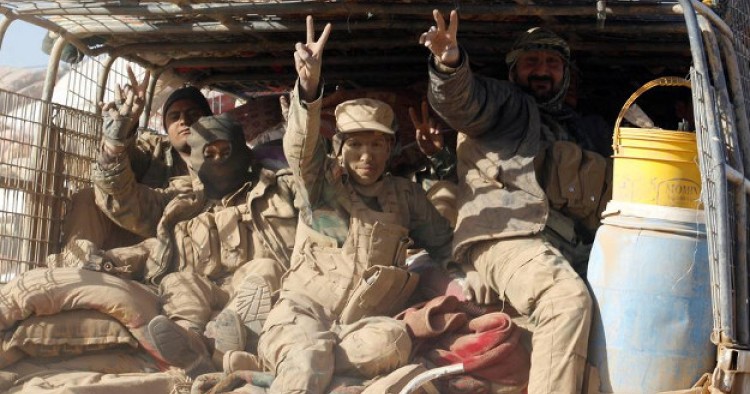The spokesperson for the Iraqi Popular Mobilization Forces (P.M.F.) has announced that the paramilitary forces will participate in the upcoming military operation against the Islamic State in Tal Afar despite regional concerns, Iran’s Fars News Agency reported today. “In the operation to liberate Tal Afar, all Hashd al-Shaabi forces, the Iraqi army, the federal police and also counterterrorism and rapid-reaction forces will participate,” Ahmed al-Assadi was quoted as saying. “[Prime Minister] Haider al-Abadi, the commander-in-chief of the Iraqi armed forces, directly ordered the joint operation command two weeks ago to ask all military units that will take part in the battle to recapture Tal Afar to be ready. And these units are preparing now.” Assadi emphasized that the P.M.F. forces are the “primary pillar” of the Iraqi armed forces and part of the country’s security system.
Comment: The P.M.F.’s potential participation in Tal Afar operation will have serious implications for post-Islamic State stabilization efforts in Iraq. The strategic town of Tal Afar, located about 40 miles west of Mosul, could prove to be a dangerous flashpoint for sectarian violence and proxy wars between regional countries, particularly Iran and Turkey.
Tal Afar has been a major Islamic State stronghold since 2014. Once inhabited by both Sunnis and Shiites, the population in the Turkmen-majority city is now largely Sunni. The P.M.F. forces – which are dominated by Shiite groups supported by Iran – have played a prominent role in the military campaign against the Islamic State in western Mosul. In recent months, P.M.F. forces have captured strategic regions in western Mosul and along the Syrian-Iraqi border.
The P.M.F.’s increasing role in western Mosul, particularly in Tal Afar, has been a matter of grave concern for Iraqi Sunnis and regional Sunni leaders, who have repeatedly expressed the worry that Iran-backed sectarian groups may engage in revenge killings against Tal Afar’s Sunni inhabitants once the Islamic State is ousted. Turkey, in particular, has warned that it would not remain silent to the P.M.F.’s advances into Tal Afar. While some P.M.F. units are Iraqi nationalists and follow Iraq’s top cleric Grand Ayatollah Ali Sistani, what makes Iraqi Sunnis and regional Sunni states particularly worried is that, despite P.M.F.’s diversity, it is the Iran-backed militia units that are playing a leading role in western Mosul.
Iranian-backed Iraqi paramilitary forces have long sought permission from the Baghdad government to be allowed to move in to Tal Afar, or at least be part of the operation to liberate the town.
P.M.F. leaders in the past have confirmed that the Hashd al-Shaabi will not take part in the military operation to recapture the strategic city of Tal Afar from the Islamic State. “Our forces will not participate in this operation due to pressure by Turkey, America and some other countries that support Daesh [Islamic State],” said Jawad al-Talibawi, a spokesman for the armed wing of Asaib Ahl al-Haq, a Shiite Iraqi militia group with close ties to the Islamic Revolution Guards Corps (I.R.G.C.). But according to the Iranian media, Iraqi Prime Minister Haider al-Abadi had recently hinted that P.M.F. units would participate in the Tal Afar operation.
The news also comes at a time that tension between P.M.F. units and the leadership of Iraqi Kurdistan Regional Government (K.R.G.) is escalating in the run-up to the latter’s plan to hold an independence referendum next month. On Wednesday, K.R.G. President Masoud Barzani said his government will not allow P.M.F. forces to enter Kurdish regions.
The Middle East Institute (MEI) is an independent, non-partisan, non-for-profit, educational organization. It does not engage in advocacy and its scholars’ opinions are their own. MEI welcomes financial donations, but retains sole editorial control over its work and its publications reflect only the authors’ views. For a listing of MEI donors, please click here.













